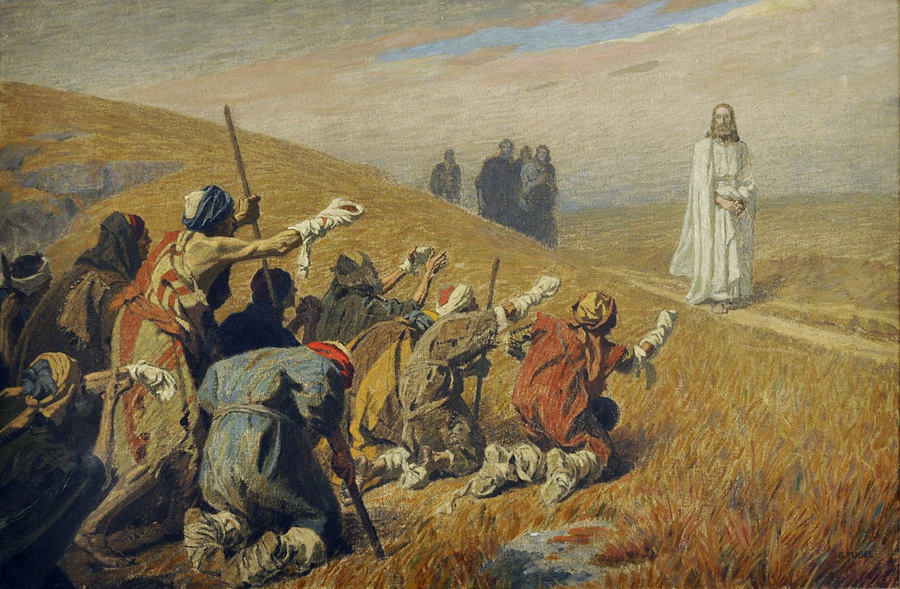
Go, Show Yourself To The Priest
02-11-2024Weekly ReflectionFr. Manasseh Iorchir, VCIn ancient Israel, leprosy was a disease that was considered a punishment for committing sin and a person who was unfortunate to contract it was marginalized and their communion with both God and man was unfortunately disrupted. The First Reading provides a background to understanding the encounter between Jesus and the leper who, after receiving healing from Jesus, decided to disobey Jesus’ instruction to him to “see that you tell no one anything….” by spreading the news of his miraculous cure everywhere, thus impeding the Lord’s movement.
God had directed Moses and Aaron to tell the people to bring to Aaron, or any of the priests, for careful examination of anyone who had a skin disease that corresponded with the description of leprosy. If the priest determined that such a person was actually infected by leprosy, the person was to be declared unclean by the priest, rend his garments, leave his head uncovered, desist from mingling with others, stay away from the assembly for worship, and announce his uncleanliness in order to prevent others from coming into physical contact with him. Such a leper could only be reintegrated into society if the priest declared them clean after a cure had been verified and certified. As can be imagined, being a leper was not a good position for anyone to find themselves.
Although Scripture is very clear that leprosy and any other disease is not the result of any moral offense on the part of the sufferer, it is worth noting the similarity between the consequences of sin and the effects of leprosy in ancient times. Like skin disease, sin is a clinging contagion that contaminates the sinner and those he contacts. There is a social dimension to the effect of sin in the sense that it destroys interpersonal relationships, can scandalize or cause injury to the faith of others, and affects our relationship with God. Sin is a spiritual “leprosy.” This is why St. Paul encouraged the early Christians to “avoid giving off ense.” Therefore, it is not enough to do things that are “within our rights,” we are encouraged to give good examples that build the faith of others. The way we spend our money, the entertainments that we choose, the businesses that we patronize, even the friendships that we keep, none of those should become the occasion of scandals to others. This is particularly true of the Clergy and other leaders in the Church.
We can now understand why the leper in the Gospel passage showed much faith in approaching Jesus in his desperation to be restored to communion with God and his community: the extent of Jesus’ compassion for him by touching him while he was still unclean, the reason Christ referred him to the priests for him to be readmitted into the community, and the way the leper could not keep to Jesus’ instruction to stay quiet about this miracle. The leper was desperate for help and so he broke barriers and exhibited great faith to get what he wanted. Jesus loves us beyond man-made laws and customs, so He touched the man considered unclean to make him clean and sent him to the priest for confirmation of his healing and reabsorption into society and community of believers. This man could not keep quiet about his healing and restoration to communion with his community and with God because it meant the world to him. Jesus continues to comb the streets of our time in search of those suffering from the spiritual leprosy. Those are the men and women of faith to whom Jesus would say, “Go, show yourself to the priest (the Sacrament of Reconciliation), so that they can be reintegrated into the Holy people of God and be in the right relationship with their God.” The gentle touch of Christ can be made visible by our actions, not only in caring for the needs of the suffering and the neglected, but also in ensuring that our actions do not turn others away from the Gospel.
May we be the arms of Christ that bring all people, especially the imperfect, the suffering, and the neglected into the warm embrace of God.
Please be kind and may God bless you.
Fr. Manasseh
BACK TO LIST